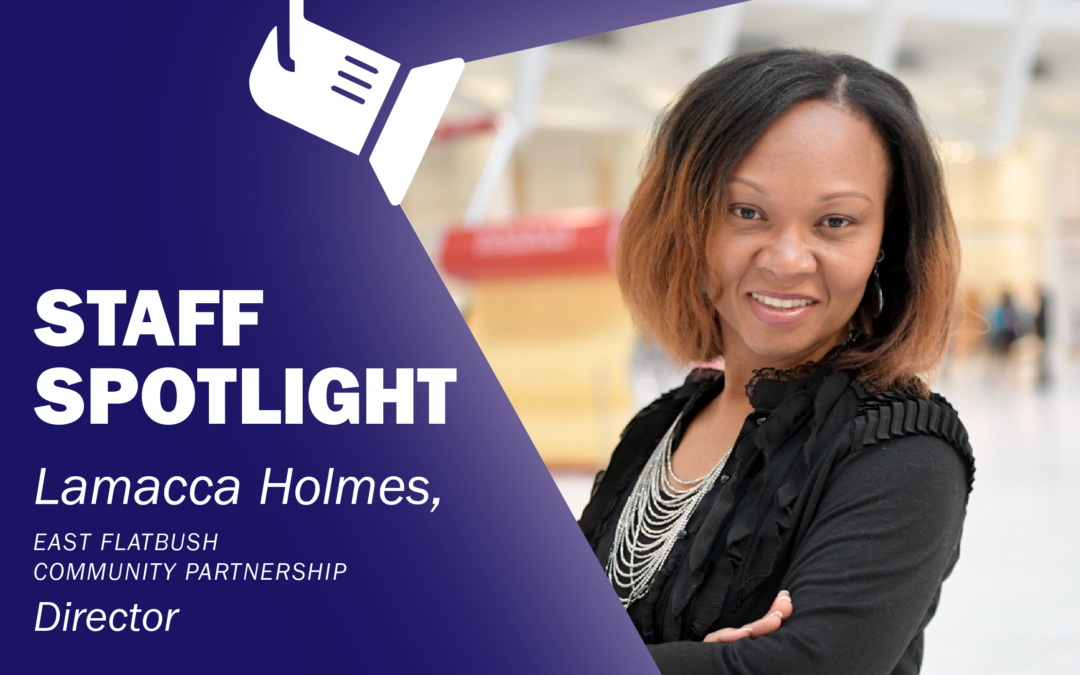On the occasion of her recognition by the 67th Precinct Clergy Council and a slew of NYC elected officials for her work in the community, JCCA sat down with Lamacca Holmes, Director of the East Flatbush Community Partnership, to talk about her life and career.
What does the Partnership do and how does the work speak to you?
This job is all about making and sustaining connections. That’s a strength I bring. In in each phase of my career––as a teacher, an entrepreneur––I’ve cultivated lasting relationships. Sometimes I wish I spent more time working with clients directly, but I know my true skill lies in orchestrating collaboration behind the scenes.
EFCP is funded by the Administration for Children’s Services (ACS) as part of its prevention strategy. The goal is to prevent families from entering the child welfare system. We’re a hub: we connect residents to vital resources. If families have a network, if they have access to what they need, that tends to prevent the worst outcomes. There’s a lot of support to be found for families, they often just don’t know where to look. They’re busy and overwhelmed. We’re here to guide them.
The pandemic must have been an intense time for this kind of work.
It was a pivotal time for our program––an opportunity to be there for our community in very immediate ways and expand our network. Fortunately, we had funds at our disposal. The first thing we did was to reach out to partner organizations who had trust and presence in the community and gave them financial support to increase their food distribution efforts. Next we created an aid initiative. We asked our partners to refer people who had urgent and specific needs. We distributed gift cards to pay outstanding utility bills. So many people found out who we were––and how much we cared––because of these efforts. I’m happy to report that we were just awarded funds from our Councilmember, Rita Joseph, to continue this work.
You also serve as an advisor to ACS.
Yes. It’s no secret that ACS is not always viewed positively. They’d like to change that by connecting with residents earlier on and involving them in decisions before the stakes get too high. We’ve worked together to create a community engagement framework to develop trust and remove barriers.
You’ve been on the other side of these interactions and felt their impact.
My childhood was challenging. My family dealt with ACS. I spent time in care with my loving grandmother. Once ACS is in your life, your life changes forever. So it means a lot to me to be able to advocate for families, and to help families advocate for themselves. The truth is that I wish my own mom had had a little more help, rather than the more drastic intervention of the child welfare system. I’m able to give voice to that experience when advising ACS. But I was fortunate in many ways. I had mentors and role models take me under their wings and show me new horizons. I got to where I am today because of relationships. And that’s at the heart of what I do every day.
